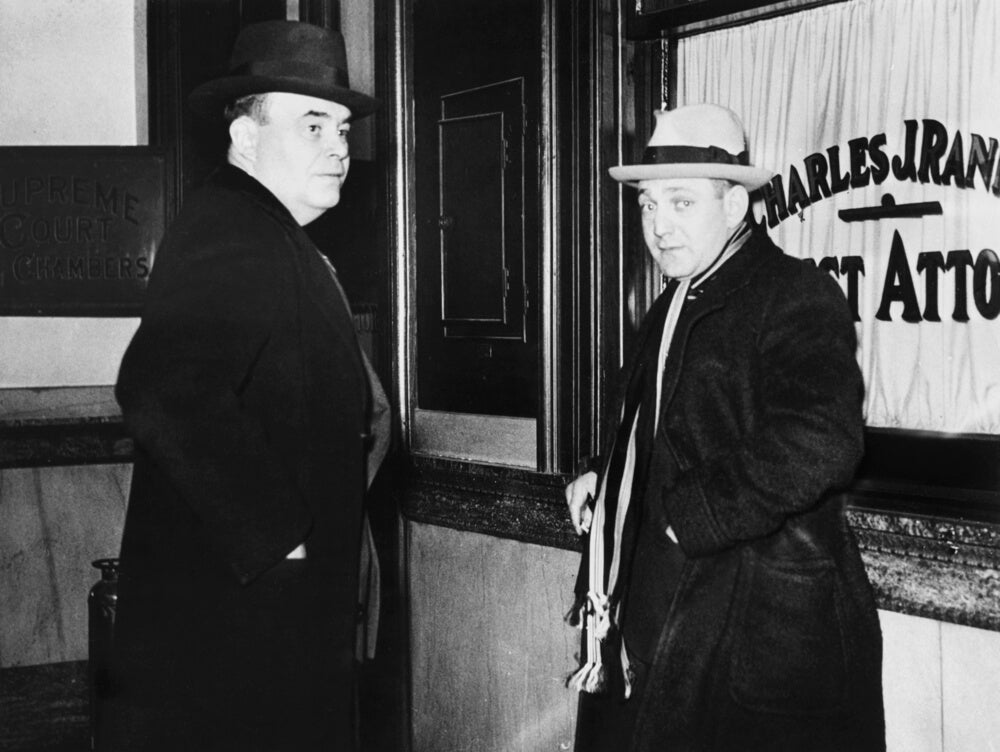Organized crime is understood as a means of commissioning crimes, requiring a certain level of planning and joint and coordinated participation of several people.
Criminal organizations like the Italian Mafia, under the names Camorra, Cosa Nostra and?Ndrangheta, or the Italian-American Mafia, or Yakuza and Asian criminal organizations, Colombian and Mexican cartels, as well as mafias from Russian countries and other Eastern European countries and Brazilian criminal factions.
The key features of these criminal organizations are
Organized crime needs a methodology to function, an action that often requires great movement and trust among the members of the group, if a person fails, the goal not only becomes more difficult, but that the members of the organization can end up in prison. .
On the other hand, to explain why someone ends up in organized crime and becomes an active part of it, we can talk about three factors that generally have a big influence: reasons, opportunities and functions.
To start a criminal organization or get involved in a criminal organization, we must first have a motivation to do so. In addition, there must be certain conditions and opportunities. If there is no organization very close to the person, membership may not be a real possibility.
Finally, once inside, there must be benefits or functions, if there is no reinforcement or gain for the person to be in a criminal organization, the motivation may diminish and even disappear.
“The biggest crime is, in fact, not in those who kill, but in those who do not kill but let them kill. ” – José Ortega and Gasset-
There are several theories that have tried to explain the functioning of organized crime taking into account different factors. Speaking of macrosocial factors, we find the state failure assumption and the failed economy assumption.
As the name suggests, these two hypotheses suggest that the failure of a state or its economy is what predicts the emergence of organized crime, however, this theory would be incomplete considering that organized crime also exists in prosperous and democratic countries. States.
Social changes are other macro-factors that help understand the birth of organized crime in a given region, for example, migration can facilitate its development or technological advances can lead to new drugs, in addition, a crime-dominated environment is creating more and more crime. There’s always someone who wants revenge on someone, or someone who sees an opportunity to take advantage at the expense of others.
On the other hand, geographical factors are no less important, for example, we have the situation in Mexico, located between cocaine-producing countries and a potential market, the United States.
“Every crime is a transfer of the evil from which it acts upon the suffering. “Simone Weil.
Macrosocial factors are important, but microsocial factors will also play an important role. A country may be an ideal place for the emergence of organized crime, but ultimately it is the people who must shape the group. factors such as the inability to recover, obtaining status or any achievement will be major problems in combating organized crime.
In this way, groups that feel marginalized can create criminal organizations, this would be favored by uncontrollability, the absence of laws that prevent it, or security forces that cannot control people.
The crime subculture also has a significant influence. Growing up and growing up in an environment with many crimes will promote a crime situation in adult life, thus it will be essential to acquire certain skills, which is highly encouraged by social relations with members of criminal organizations, especially when there is trust.
Finally, we also have the personality factors, which will play an important role, although the majority of the members of criminal organizations are men, gender will not determine whether or not a person will join a criminal organization.
Roles within these organizations are increasingly divided between men and women, on the contrary, having committed crimes before or sharing an identity, whether ethnic, cultural, national or regional, with a criminal organization, will have a great influence on participation.
In conclusion, it could be said that there are several avenues of access to organized crime and, therefore, different profiles of organized crime groups, whatever path it takes, organized crime requires some prior specialization or skills.
This is particularly true when it comes to people in senior positions in this type of group, the group always cares mainly about the fact that each person as a whole is as appropriate as possible. Finally, we cannot fail to point out that otherwise to find yourself in such an organization is to socialize, from an early age, in a criminal subculture.

